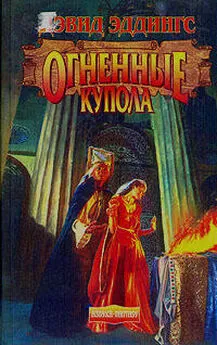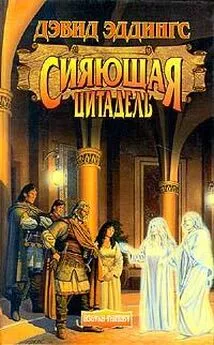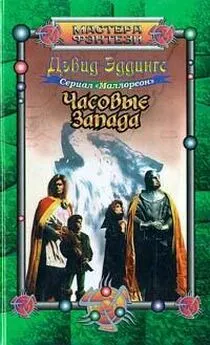David Wallace - Infinite jest
- Название:Infinite jest
- Автор:
- Жанр:
- Издательство:Back Bay Books
- Год:2006
- ISBN:нет данных
- Рейтинг:
- Избранное:Добавить в избранное
-
Отзывы:
-
Ваша оценка:
David Wallace - Infinite jest краткое содержание
Infinite Jest is the name of a movie said to be so entertaining that anyone who watches it loses all desire to do anything but watch. People die happily, viewing it in endless repetition. The novel Infinite Jest is the story of this addictive entertainment, and in particular how it affects a Boston halfway house for recovering addicts and a nearby tennis academy, whose students have many budding addictions of their own. As the novel unfolds, various individuals, organisations, and governments vie to obtain the master copy of Infinite Jest for their own ends, and the denizens of the tennis school and halfway house are caught up in increasingly desperate efforts to control the movie — as is a cast including burglars, transvestite muggers, scam artists, medical professionals, pro football stars, bookies, drug addicts both active and recovering, film students, political assassins, and one of the most endearingly messed-up families ever captured in a novel.
On this outrageous frame hangs an exploration of essential questions about what entertainment is, and why it has come to so dominate our lives; about how our desire for entertainment interacts with our need to connect with other humans; and about what the pleasures we choose say about who we are. Equal parts philosophical quest and screwball comedy, Infinite Jest bends every rule of fiction without sacrificing for a moment its own entertainment value. The huge cast and multilevel narrative serve a story that accelerates to a breathtaking, heartbreaking, unfogettable conclusion. It is an exuberant, uniquely American exploration of the passions that make us human and one of those rare books that renew the very idea of what a novel can do.
Infinite jest - читать онлайн бесплатно полную версию (весь текст целиком)
Интервал:
Закладка:
He hadn’t in the beginning burgled, Gately, as a full-time drug addict, though he did sometimes promote small valuables from the apartments of the strung-out nurses he X’d and copped samples from. After the bailout from school, Gately worked full-time for a time for a North Shore bookmaker, a guy that also owned several titty clubs down Rte. 1 in Saugus, Whitey Sorkin, that had sort of casually befriended him when Gately was still playing high-profile ball. His professional association with Whitey Sor-kin continued part-time even after Gately discovered his real B&E vocation, though he tended more and more toward less taxing nonviolent crime.
But from age like eighteen to twenty-three, Gately and the prenominate Gene Fackelmann — a towering, slope-shouldered, wide-hipped, prematurely potbellied, oddly priapistic, and congenitally high-strung Dilaudid addict with a walrusy mustache that seemed to have a nervous life of its own — these two served as like Whitey Sorkin’s operatives in the field, taking bets and phoning them in to Saugus, delivering winnings, and collecting debts. It was never clear to Gately why Whitey Sorkin was called Whitey, because he spent a huge amount of time under ultraviolet lamps as part of an esoteric cluster-headache-treatment regimen and so was the constant shiny color of a sort of like dark soap, with almost the same color and coin-of-the-realm classic profile as the cheery young Pakistani M.D. who’d told Gately at Our Lady of Solace Hospital in Beverly how Teddibly Soddy he was that Mrs. G.’s cirrhosis and cirrhotic stroke had left her at roughly the neurologic level of a Brussels sprout and then given him public-transportation directions to the Point Shirley L.T.I.
Eugene (‘Fax’) Fackelmann, who’d dropped out of the Lynn MA educational system at like ten, had met Whitey Sorkin through the same eczema-tic, gamble-happy pharmacist’s assistant Gately had first met Sorkin through. Gately was now no longer called Bimmy or Doshka. He was Don now, nicknameless. Sometimes Donny. Sorkin referred to Gately and Fackelmann as his Twin Towers. They were more or less Sorkin’s paid muscle. Except not in any sort of way important crime figures’ paid muscle is portrayed in popular entertainment. They didn’t stand impassively flanking Sorkin at crime-figure meetings or light his cigar or call him ‘Boss’ or anything. They weren’t his bodyguards. In fact they weren’t physically around him that much; they usually dealt with Sorkin and his Saugus office and secretary via beepers and cellular phones.[367]
And while they did collect debts for Sorkin, including bad debts (especially Gately), it’s not like Gately went around breaking debtors’ kneecaps. Even the threat of coercive violence was pretty rare. Partly, Gately and Fackelmann’s sheer size was enough to keep delinquencies from getting out of hand. And partly it was that everybody involved usually knew each other — Sorkin, his bettors and debtors, Gately and Fackelmann, other drug addicts (who sometimes bet, or more often dealt with Gately and Fackelmann for guys that did), even the North Shore Finest’s Vice guys, many of whom also sometimes bet with Sorkin because he gave the Finest special civil-servant reductions on vigorish. It was all like this community. Usually Gately’s job on bad debts or delinquent vig was to go around to the debtor at whatever bar the guy watched satellite sports at and just inform him that the debt was threatening to get out of hand — making the debt itself seem like the delinquent party — and that Whitey was concerned about it, and work out some arrangement or payment-plan with the guy. Then the young Gately’d go into the bar’s head and cell-phone Sorkin and get his OK on whatever arrangement they’d worked out. Gately was laid-back and affable and never had a hard word for anybody, hardly. Nor did Whitey Sorkin: a lot of his bettors were old and steady customers, and lines of credit went with the territory. Most of the rare debt-trouble that called for size and coercion involved guys with a gambling problem, kind of pathetic furtive guys addicted to the rush of the bet, who got themselves in a hole and then tried suicidally to bet their way out of the hole, and who’d bet with several bookies at once, and who’d lie and agree to payment-arrangements they had no intention of sticking to, suicidally betting they could keep all their debts in the air until they could square themselves with the major long-shot score they were always sure was around the corner. These types were painful, because usually Gately knew the debtors and they’d exploit his knowing them and beg and weep and tug at both Gately’s and Whitey Sorkin’s heartstrings with tales of loved ones and wasting illnesses. They’d sit there and look into Gately’s eyes and lie and believe their own lies, and Gately would have to call in the debtors’ lies and sob-stories and get Sorkin’s explicit decision on if to believe them and what to do. These types were Gately’s first exposure to the concept of real addiction and what it can turn someone into; he hadn’t yet connected the concept to drugs really, except coke-heads and hardcore needle-jockeys, who at that point all seemed to him just as furtive and pathetic as the gambling-addicts, in their own way. These sob-story-, one-more-chance-types were also the types that put Whitey Sorkin through hell in terms of emotionally, causing Whitey cluster headaches and terrible cranio-facial neuralgia, and at a certain point Sorkin used to start adding (to the delinquent skeet, the vig, and the interest) extra charges for his own required intake of Cafergot [368]spansules and UV light and visits to Enfield MA’s National Cranio-Facial Pain Foundation. The use of Gately and Fack-elmann’s rump-roast-sized fists in actual hands-on coercion got called for only when a compulsive debtor’s lies and hole got serious enough that Sorkin became willing to forgo the guy’s patronage in the future. At this sort of point, Whitey Sorkin’s business-objective became to somehow induce the addicted debtor to cover his debts to Sorkin before the debtor covered his debts to any of the other books he was into, which meant for Sorkin that he had to vividly demonstrate to the debtor that Sorkin’s was the least pleasant hole to be in and the most important one to get out of. Enter the Twin Towers. The violence was to be tightly controlled and gradually progressive in like stages. The first round of incentivizing hose-work — a light beating, maybe a broken digit or two — usually fell to Gene Fackelmann, not only because he was the naturally crueler of the Twin Towers and rather liked putting a digit in a car door, but also because he had a controlled restraint Gately lacked: Sorkin found that once Gately got started in physically on somebody it was like something ferocious and uncontrolled on a slope inside the big kid got dislodged and started to roll on its own, and sometimes Gately wouldn’t be able to stop himself before the debtor was reduced to a condition where he wasn’t even going to be able to raise his head, much less funds, at which point not only did Sorkin have to write off the debt but the big kid Donny’d get so guilty and remorseful he’d triple his drug-intake and be no use to fucking nobody for a week. Sorkin learned how to use his Towers to maximize their strengths. Fackelmann got the first-round light work for coercive collections, but Gately was better than Fax at negotiating arrangements with guys so it never had to come to violence. And there were certain harder cases, cases that laid Sorkin out in bed with cranio-facial stress for days at a time because they were hard-case addicts that were either so far gone or so deep in so many holes that Fackelmann’s light cruelty didn’t resolve the situation. At an extreme point with some of these cases Sorkin got to a point where he was willing to forgo not only the debtor’s future patronage but also the remittance due; at a certain point the goal was to minimize future other hard cases by making it clear that W. Sorkin was one book you couldn’t just flagrantly stay in the hole with and lie to for month after month without having your map seriously fucking reconfigured. Here again, in this-type case Gately’s internal out-of-control slope of ferocity was superior to Fackelmann’s easy but ultimately shallow sadism.[369]
W. Sorkin, like most psychosomatic-level neurotics, was spiteful to his enemies and overgenerous to his friends. Gately and Fackelmann each received 5 % vig on the 10 % vigorish Sorkin took on every bet, and Sorkin made over $200,000 worth of book all over the North Shore on a week’s pro ball alone, which for most diplomaless young Americans 1,000+ per pre-millennial week would have been a very handsome living, but for the Twin Towers’ rigid physical scheduling of narcotics needs was not even 60 % enough, weekly. Gately and Fackelmann moonlighted, and for a while separately — Fackelmann’s sideline with I.D.s and creative personal checking, Gately working freelance Security for large card games and small drug-deliveries — but even before they were a real crew they copped as a unit, as in together, plus once in a moon with poor old V. Nuccí, for whom Gately also occasionally held the rope on late-night Osco-and-Rite-Aid-skylight missions, his entree to formal burglary proper. The fact that Gately was devoted to Percocets and Barn-Bams and Fackelmann to Dilaudid allowed them a high level of trust with each other’s stashes. Gately would do Blues, which had to be injected, only when no oral narcs were to be got and he was face to face with early Withdrawal. Gately feared and despised needles and was terrified of the Virus, which in those days was laying out needle-jockeys left and right. Fackelmann would cook up for Gately and tie him off and let Gately watch closely as he took the plastic wrap off a mint-new syringe and needle-cartridge Fackelmann could get with a fake Medicaid Iletin [370]I.D. for diabetes mellitus. The worst thing about Dilaudid for Gately was that the hydromorphone’s transit across the blood-brain barrier created a terrible five-second mnemonic hallucination where he was a gargantuan toddler in an XXL Fisher-Price crib in a sandy field under a storm-cloudy sky that bulged and receded like a big gray lung. Fackelmann would loosen the belt and stand back and watch Gately’s eyes roll up as he broke a malarial sweat and stared up at the delusion’s respiritic sky while his huge hands throttled the air in front him just like a toddler shakes at the bars of his crib. Then after five or so seconds the Dilaudid would cross over and kick, and the sky stopped breathing and turned blue. A Dilaudid nod made Gately mute and sodden for three hours.
Besides the maddening itch behind the eyes, Fackelmann didn’t like oral narcotics because he said they gave him terrible sugar-cravings that his huge soft slumped weight wouldn’t tolerate indulging. Not exactly the swiftest ship in Her Majesty’s fleet in terms of like upstairs, Fackelmann was resistant to Gately’s pointing out that Dilaudid also gave the Faxman terrible sugar-cravings, as did actually just about everything. The plain truth was that Fackelmann just really liked Dilaudid.
Then good old Trent Kite got the administrative Shoe from Salem State, who informed him he’d never study in the industry again, and Gately brought Kite into the crew, and Kite threw together some old-time Quo-Vadis for a small crew-warming party, and Fackelmann introduced Kite to pharmaceutical-grade Dilaudid, and Kite found a new friend for life, he said; and Kite and Fackelmann swiftly fell into the I.D.-, credit-history-and-furnished-luxury-apartment-scam, in which by this time Gately involved himself pretty much only as a hobby, preferring bold nighttime merchandise-promotion to fraud, which fraud tended to involve meeting the people you stole from, which Gately found slimy and kind of awkward.
Читать дальшеИнтервал:
Закладка:










